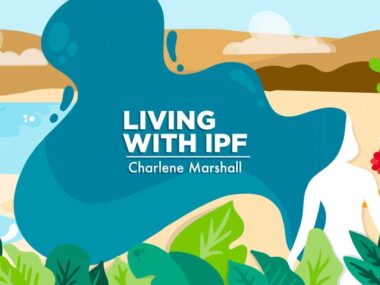Understanding and responding to an IPF exacerbation
Don't be afraid to raise the alarm if your symptoms start to worsen
Written by |

When idiopathic pulmonary fibrosis (IPF) patients experience a worsening of symptoms, it’s often called an exacerbation.
I didn’t know it at the time, but my diagnosis with IPF in January 2017 started me on an educational journey. My vocabulary was going to expand to include new words and terms. For me, the scariest one was exacerbation.
Shortly after my diagnosis, I heard that term and asked my care team about it. I learned that an exacerbation isn’t unique to pulmonary fibrosis. It can be a worsening of any illness or condition.
For IPF patients, though, exacerbations affect the respiratory system. A 2015 article published in the Journal of Thoracic Disease defines an acute IPF exacerbation as “a sudden acceleration of the disease … that leads to a significant decline in lung function.”
When illnesses lead to exacerbations
From the very beginning of my journey, germs were bad. Catching even a common cold can have negative implications for those of us with the disease.
If an illness can make a normally healthy person feel terrible, the impact on an IPF patient is likely amplified. Before my bilateral lung transplant in July 2021, I avoided being around people who were ill. It didn’t matter to me what type of illness they had; any kind of sickness was sufficient reason for me to be cautious.
When COVID-19 hit in March 2020, I took refuge in my home to avoid contracting the virus. Although my IPF was worsening, my oxygen needs had increased only slightly, so I was deferred from transplant because my care team felt I was early in the transplant window. An exacerbation caused by COVID-19 wouldn’t have been good for my struggling respiratory system. I was able to avoid the illness before my transplant.
Exacerbations can also occur post-transplant. Following the surgery, my immune system was suppressed to prevent my body from rejecting my new lungs or treating them like a foreign object. As a result, even though I was fully vaccinated, I contracted COVID-19. I was hospitalized for four nights and treated with remdesivir (also known by its brand name, Veklury), which helped me start feeling better almost immediately.
I also managed to contract pneumonia post-transplant. My care team immediately took steps to get it under control, but the illness did require me to be hospitalized. A 10-day course of antibiotics, along with heavy dosing of steroids, resolved that exacerbation.
Thanks to my care team, neither exacerbation became life-threatening.
Don’t hesitate to raise any concerns
IPF exacerbations can take many forms, including:
- A sudden and sustained decrease in oxygen saturation
- The inability of supplemental oxygen to sustain oxygen saturation
- A cold, the flu, or an illness such as COVID-19 or respiratory syncytial virus
- Anything that further complicates or worsens your IPF.
When we as patients feel that something isn’t right, or when our caregiver observes a change, we need to get in touch with our care team. You’re not bothering them by bringing these concerns to their attention. In fact, delaying those conversations can eventually make their work more difficult.
This disease is cruel and often unpredictable. Recognizing when to call your care team is one of your most important responsibilities. Staying ahead of exacerbations will provide the best opportunity for minimizing negative effects.
You being here is the only way we can make every breath count.
Note: Pulmonary Fibrosis News is strictly a news and information website about the disease. It does not provide medical advice, diagnosis, or treatment. This content is not intended to be a substitute for professional medical advice, diagnosis, or treatment. Always seek the advice of your physician or other qualified health provider with any questions you may have regarding a medical condition. Never disregard professional medical advice or delay in seeking it because of something you have read on this website. The opinions expressed in this column are not those of Pulmonary Fibrosis News or its parent company, Bionews, and are intended to spark discussion about issues pertaining to pulmonary fibrosis.







William Renner
Thanks for sharing your journey. I was diagnosed with IPF in March,2022, but, looking back, I think I was showing some of the symptoms as much as five years before the diagnosis. Exacerbation is one of those terms I've heard many medical professionals mention. Usually followed by a "You'll know it when you have one." declaration. I felt a vague looseness in my chest last summer, especially when I coughed. As it turns out, the timing of a previously scheduled HRCT was fortuitous. My doc called me a couple of hours later and told me to meet him at the ER, I was suffering from a pneumothorax. I incorrectly thought this was an exacerbation, but the experience increased vigilance to be on the lookout when a for-sure exacerbation happens.
Randall Thornton
Hello Sam, This word is interesting. My pulmogist has been calling my probelm, sudden increase pf. It is increasing so fast that regular oxygen couldn't keep up with it anymore. Everything was set at 10 and still nothing would help. My oxygen level and blood readings in the morning and evening was down in the 50s for oyxygen and 80s for the blood pressure. My lung doc said that the only way to stay above ground was to get on liquid oxygen and now I am in hospice. There is nothing that can be done anymore except what hospice can do. I have 1/2 lung left(that was 4 months ago) and she said it is fading fast.
Makes me wonder if I didn't have this desease back in the 20-teens. The doc I had said I had emphazisma and treated me for that. Wasn't till I ended up in the hospital with breathing problem, sweating and temp that it was found out what I really had.It has been 4 years now. all I can say is I have reaquinted myself with God and pray he keeps me going for awhile longer. Not only do I have grandkids graduating and going off to college or flight school, I have a wife who has taken care of me our entire married life and really is my care taker now. Would like some ump so I can get back to helper her out so she doesn't have to do everything herself.
Well, everyone ready this, I wish you the best and keep it above ground.
Randy
Samuel Kirton
Randy,
Thanks for always reading my column and sharing your journey. I am sorry to learn that you are now in hospice. I hope that provides you a good quality of life and allows you to enjoy time with your family. As for your comment on liquid oxygen, that is a recognized problem for supplemental oxygen users here in the U.S. It support a higher flow rate but is generally not available.
Sam...